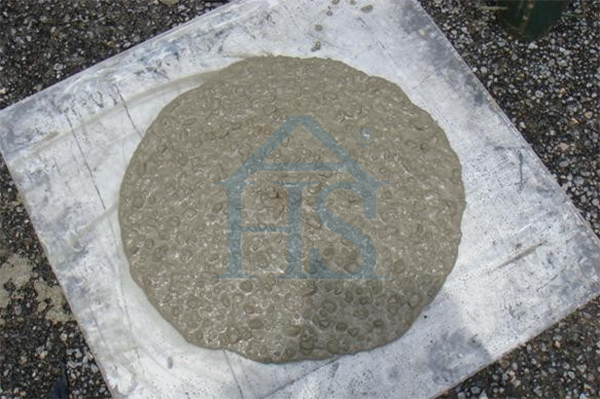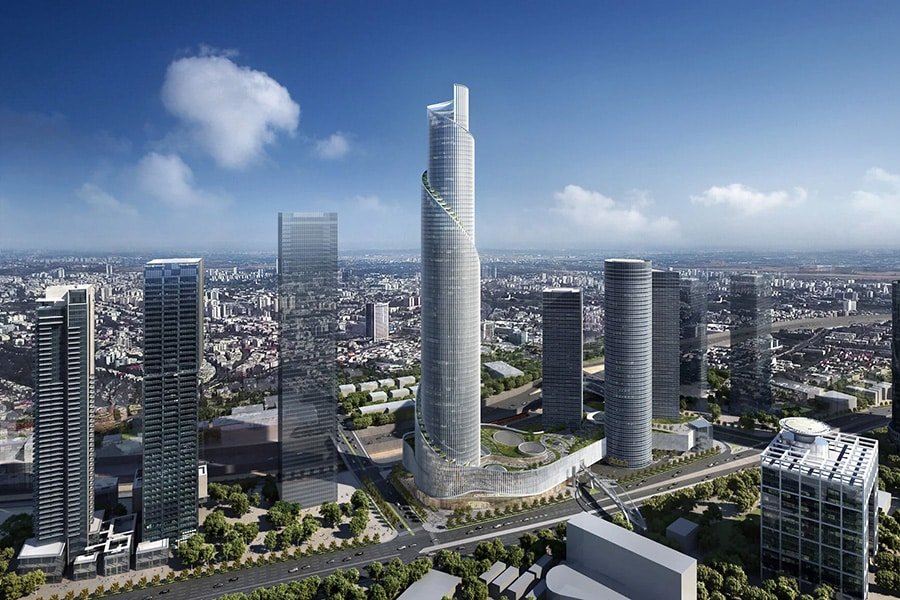After the construction of concrete is completed, it takes a long time to maintain the period, but often after the maintenance period, there will still be carbonation, causing concrete cracking, spalling, in the final analysis, or because the concrete is not dense enough, the reaction of carbon dioxide in the air with the concrete exposed to the air, thus appearing carbonation, that how to prevent concrete carbonation?
In fact, to prevent concrete carbonation, what needs to be done is to improve its compactness, so that the internal pores of concrete, bubbles and other defects are reduced, so that the carbon dioxide in the air can easily enter the internal good, and at the same time with a reasonable construction and maintenance methods, the basic can prevent concrete carbonation, specific methods to enhance the compactness of concrete from the raw materials and construction and maintenance of two aspects to carry out.
The use of suitable raw materials ratio
1.Water-cement ratio
The size of the water-cement ratio determines the compactness of concrete to a certain extent, the larger the water-cement ratio, the more pores after the concrete hardening, the greater the contact surface of carbon dioxide with the air; on the other hand, as the water-cement ratio increases, the stronger the ability of carbon dioxide diffusion in the concrete, a study shows that the water-cement ratio and the depth of carbonation there is a mathematical function of the relationship: K = 12.1w/c (w / c –water-cement ratio). So if you want to avoid concrete carbonation, the first thing to do is to reduce the water-cement ratio, so as to reduce the pore space of concrete after hardening.
2.The amount of cement
The more the amount of cement in general, the better the compactness of the concrete, the fewer pores in the concrete, and the greater the alkali content in the cement, can make the concrete part of the carbonation generated after the reduction of the concentration of calcium carbonate precipitation, improve the compactness of the concrete, but it should be noted that the large amount of cement may lead to alkali aggregate reaction in concrete, so you need to cooperate with a certain amount of mineral admixture.
3. Mineral admixture
Mineral admixture mainly has silica fume, fly ash, mineral powder, etc., especially silica fume has strong volcanic ash activity, can replace part of the cement in the hydration process, and react with the cement hydration products of carbon dioxide, this process greatly reduces the alkalinity of the concrete, to avoid the alkali aggregate reaction, while silica fume and cement secondary hydration reaction generated hydration products again fill the internal pores of the concrete, further avoid the carbonation of concrete.
4. Additives
There are various varieties of admixtures, and the active substances in each admixture are not the same, mixed into different cements, the anti-carbonation effect is not the same. High-quality admixtures and compatible cement combined with the use of a certain degree to reduce the amount of water used in concrete, increase the overall compactness of concrete, is the nature of the concrete to play the more, reduce the carbonation reaction.
The reasonable construction and maintenance
1. Construction factors
Mixing, pounding and maintenance conditions and other construction factors determine the degree of compactness of concrete, but also affect the carbonation properties of concrete. Measures such as sufficient and uniform mixing, dense vibrating and pounding, heat preservation and moisturizing, and constant temperature curing can reduce the cracks, holes and looseness in the concrete, and reduce the possibility of concrete carbonation.
2. Conditioning humidity
Curing conditions also have an important influence on the generation of concrete hydration products and the size of the pores inside the concrete. In general, the steam curing of ordinary concrete is 1.5 times higher than the carbonation rate of general natural curing, because the relative humidity of the air has a decisive influence on the diffusion rate of carbon dioxide in concrete. If the humidity of carbon dioxide in concrete is large, the water in concrete is more, and the water in the pores of concrete hinders the diffusion of carbon dioxide in air in the pores of concrete, so that the contact area of carbon dioxide with concrete becomes smaller and slows down the rate of carbonation of concrete.
On how to prevent concrete carbonation, the above content is Henan Superior Abrasives for you to organize the prevention methods, it can be seen that want to improve the compactness of concrete, prevent carbonation, concrete configuration is very critical, silica fume as a mineral admixture, not only can improve the compactness of concrete, but also can effectively improve the strength and performance of concrete, is a very suitable concrete admixture.





